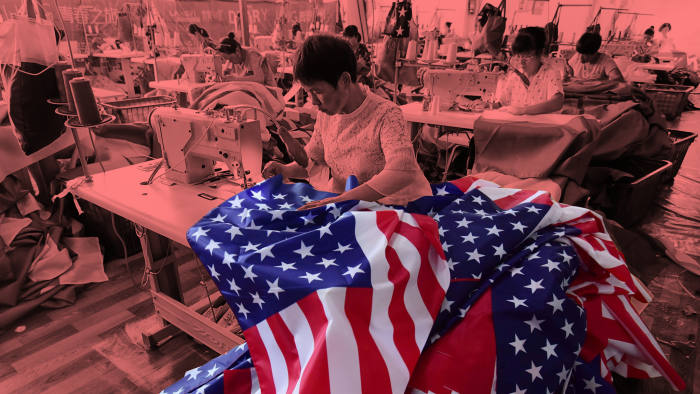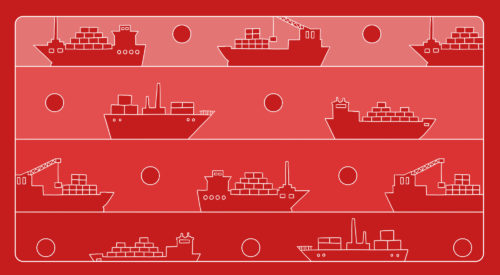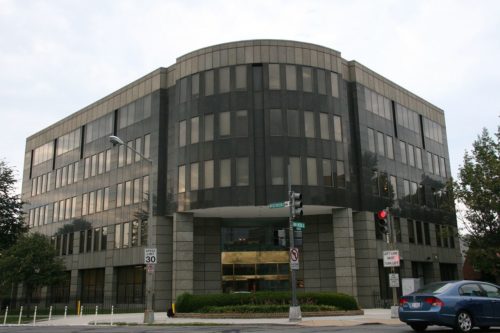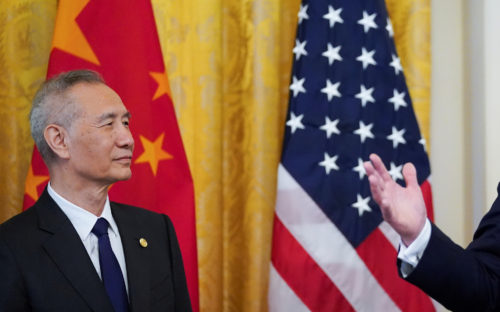Trade war, day 61: Japan and Southeast Asia win; $200 billion more Trump tariffs coming

This Thursday, September 6, the U.S. Trade Representative will wrap up its public comment period for what would be the third major round of American tariffs on Chinese products. Bloomberg reported (paywall) on August 30 that President Donald Trump “wants to move ahead with a plan to impose tariffs on $200 billion in Chinese imports as soon as a public-comment period concludes.”
The exact date for implementation of the next round of tariffs has not been reported: our guess is very soon. We summarized this and related trade war news, including the impact of trade tensions on China-Japan relations and the trend of Chinese state media becoming less restrained in its criticism of Trump, in last Friday’s Access newsletter (paywall).
One trend that continues to be highlighted in reporting is Japan’s warming to China in the shadow of the trade war:
- More positive political signals from Japan: Prime Minister Shinzo Abe told the Sankei newspaper that “the Japan-China relationship has completely returned to a normal track,” Reuters reports, and the secretary general of Japan’s ruling party invited Chinese vice president Wang Qishan to Japan, SCMP notes, and…
- Japan and China may cooperate on high-speed rail: The Nikkei Asian Review says that a “newly established public-private committee scheduled to hold its first meeting in late September in Beijing” is considering a joint project in Thailand, a deal that could be sealed if Abe visits Beijing in October. But…
- China-Japan tensions still lurk: Japan’s defense chief accused China of “unilaterally escalating” its military activities near disputed islands in the East China Sea, according to AFP.
Another trend reported in more detail (paywall) by the Financial Times — supply chains continue to shift away from China, especially in the direction of Southeast Asia:
- “We have accelerated the ramp-up in other low-cost countries and the U.S.… The focus on Vietnam in the short term is offsetting the future tariff impact we might see in the US,” Joseph Galli, the chief executive of power tools manufacturer Techtronic said. The FT notes that Techtronic “generates three-quarters of its revenue from the US for products including Hoovers.”
- Handbag manufacturer Steve Madden is “working on a plan to double its Cambodian production next year to about 30 percent of its total, in addition to considering price rises in the US,” it told investors recently.
- Flex, which “produces electronics for everyone from Bose to Google,” believes that a shift away from China is “inevitable,” but will take time, according to its chief executive Michael McNamara.
- But China’s dominance in many sectors isn’t likely to go away any time soon: factories in China will employ technology such as automation and strategies such as making higher value-added products, to compete, analysts told the FT.
Other trade war reporting:
- The car parts industry is among the most nervous about the next round of U.S. tariffs, Bloomberg reports (paywall): “Windshield wipers, bumpers, mufflers and car seats” are among those products listed as targets. Despite the products not being easily replaceable at low cost, some Chinese suppliers “haven’t heard from practically any” of their U.S. clients recently.
- The Chinese Ambassador to the U.S., Cui Tiankai 崔天凯, took a swipe at the Trump administration, saying “people who are in high places or are advising the government and leaders on economic and strategic issues don’t have sufficient common sense,” and “believe that they could make themselves great by making everyone else their enemies,” SCMP reports.
- The Chinese pork industry is struggling to cope with its latest disease outbreak — 83 pigs dead so far, but tens of thousands being culled to prevent the spread of African swine fever — in part because it can’t rely on simply increasing imports of U.S. pork to make up the difference, the Wall Street Journal reports (paywall).
- China “failed to gauge Trump’s commitment to tariffs,” NPR reporter Rob Schmitz reports, in part because it sought “advice from globalist ‘old friends of China’” who don’t understand the current hawkishness in D.C., according to Andrew Collier, former president of the Bank of China’s international division.
Previously in The China Project’s trade war coverage:






